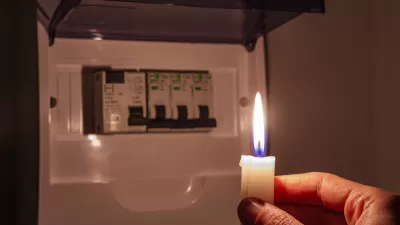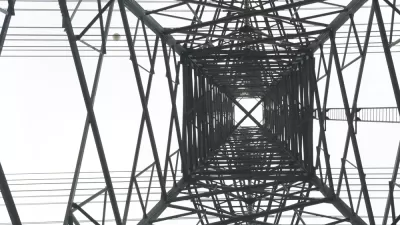The smart grid is not as hard to define as some have suggested. Jesse Berst, managing director of Global Smart Energy says making it work will be tough, but it's really just a matter of coordinating three crucial aspects, according to Worldchanging.
"He said the smart grid has three parts: smart devices, two-way communication (which makes those devices smart, and pulls and pushes the telemetry data they collect) and advanced control systems and applications (which provide the controls to act on the energy demand data that the smart devices provide). But making those three parts work together is where the real work of establishing the smart grid will come into play."
"First of all, we can't just rip out the old grid and add a new one. We have to upgrade the 100-year-old grid while it's running, while it's still churning out power. "This is upgrading it as a moving train," Berst explained. (This isn't a new problem, however, since the television industry has already met a very similar challenge.)"
"And for another thing, those smart meters and two-way communications systems and controlling software have to work. That sounds quite obvious, but by "work," the panelists are talking about 'never fail.'"
FULL STORY: Green:Net on SmartGrids, Hurdles and the New Networked Car

Planetizen Federal Action Tracker
A weekly monitor of how Trump’s orders and actions are impacting planners and planning in America.

Restaurant Patios Were a Pandemic Win — Why Were They so Hard to Keep?
Social distancing requirements and changes in travel patterns prompted cities to pilot new uses for street and sidewalk space. Then it got complicated.

Maui's Vacation Rental Debate Turns Ugly
Verbal attacks, misinformation campaigns and fistfights plague a high-stakes debate to convert thousands of vacation rentals into long-term housing.

In California Battle of Housing vs. Environment, Housing Just Won
A new state law significantly limits the power of CEQA, an environmental review law that served as a powerful tool for blocking new development.

Boulder Eliminates Parking Minimums Citywide
Officials estimate the cost of building a single underground parking space at up to $100,000.

Orange County, Florida Adopts Largest US “Sprawl Repair” Code
The ‘Orange Code’ seeks to rectify decades of sprawl-inducing, car-oriented development.
Urban Design for Planners 1: Software Tools
This six-course series explores essential urban design concepts using open source software and equips planners with the tools they need to participate fully in the urban design process.
Planning for Universal Design
Learn the tools for implementing Universal Design in planning regulations.
Heyer Gruel & Associates PA
JM Goldson LLC
Custer County Colorado
City of Camden Redevelopment Agency
City of Astoria
Transportation Research & Education Center (TREC) at Portland State University
Camden Redevelopment Agency
City of Claremont
Municipality of Princeton (NJ)





























